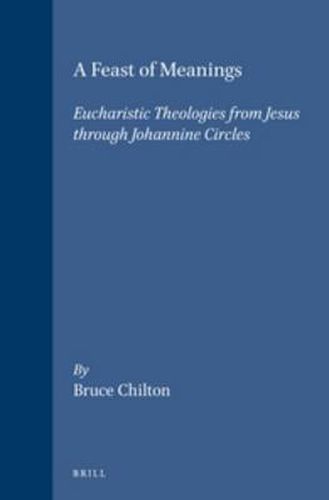Readings Newsletter
Become a Readings Member to make your shopping experience even easier.
Sign in or sign up for free!
You’re not far away from qualifying for FREE standard shipping within Australia
You’ve qualified for FREE standard shipping within Australia
The cart is loading…






This monograph analyzes eucharistic texts on the basis of the social practices which generated them. Six stages of ideology are identified. Jesus himself practised fellowship at meals as celebrations of Israel’s purity (stage 1), and later insisted that a pure meal was a better sacrifice than an offering in the Temple (stage 2). The circle of Peter made such meals into covenantal celebrations; Jesus became a new Moses (stage 3). In order to militate against the full participation of non-Jews, the circle of James invented the full identifications with Passover (stage 4). Paul resisted any such limitations (stage 5). The Synoptic tradition accepted the Jacobean chronology, but joined Paul in developing the Hellenistic theme of Jesus as heroic martyr, and in exlpaining eucharist as a means of effecting solidarity with Jesus (stage 5). The Johannine ideologies transformed the idiom of eucharist by making Jesus into the paschal lamb which is consumed (stage 6). A conclusion relates the practices identified to the sources behind the Gospels and shows how practice is key to the meanings of eucharistic texts.
$9.00 standard shipping within Australia
FREE standard shipping within Australia for orders over $100.00
Express & International shipping calculated at checkout
This monograph analyzes eucharistic texts on the basis of the social practices which generated them. Six stages of ideology are identified. Jesus himself practised fellowship at meals as celebrations of Israel’s purity (stage 1), and later insisted that a pure meal was a better sacrifice than an offering in the Temple (stage 2). The circle of Peter made such meals into covenantal celebrations; Jesus became a new Moses (stage 3). In order to militate against the full participation of non-Jews, the circle of James invented the full identifications with Passover (stage 4). Paul resisted any such limitations (stage 5). The Synoptic tradition accepted the Jacobean chronology, but joined Paul in developing the Hellenistic theme of Jesus as heroic martyr, and in exlpaining eucharist as a means of effecting solidarity with Jesus (stage 5). The Johannine ideologies transformed the idiom of eucharist by making Jesus into the paschal lamb which is consumed (stage 6). A conclusion relates the practices identified to the sources behind the Gospels and shows how practice is key to the meanings of eucharistic texts.